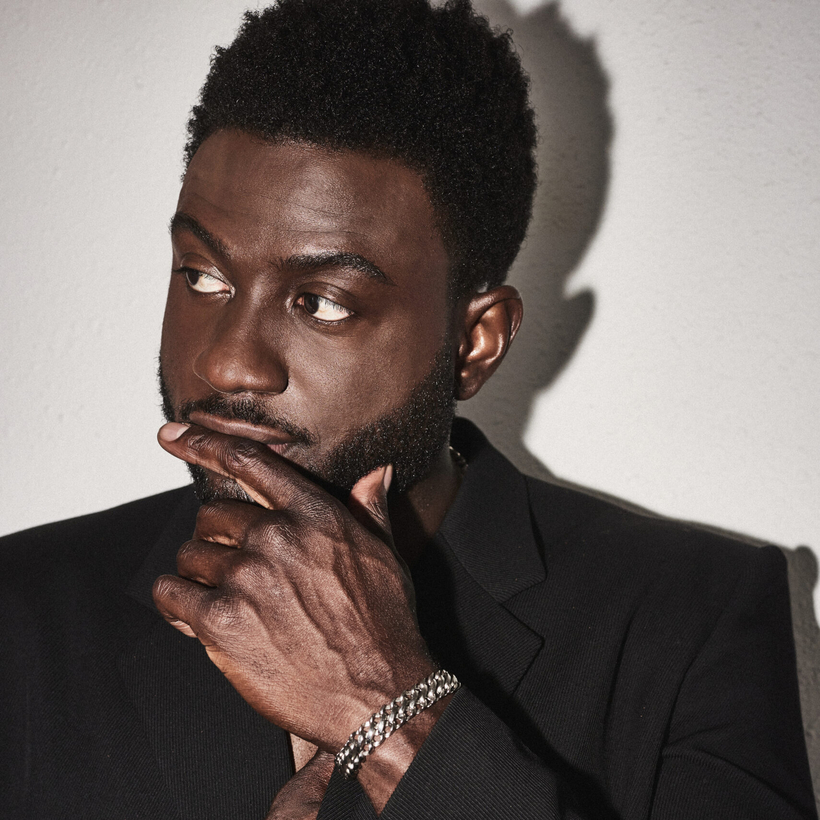Growing up in South Los Angeles, Sinqua Walls and his friends used to quote lines and act out scenes from the 1992 movie White Men Can’t Jump. For Walls, like most American teenagers stumbling through the 1990s, the film, which is about a pair of basketball hustlers who team up to earn extra cash by playing pickup games around Los Angeles, was more than just a sports movie or a buddy comedy propelled by motormouths Wesley Snipes and Woody Harrelson.
“There were so many things going on culturally during that time,” says Walls, who spoke to me on Zoom as he was leaving the gym. The movie came out a month before the Rodney King riots, a five-day period when people in Los Angeles protested the acquittal of four white policemen who had been filmed brutally beating Rodney King, a Black man, with batons.

“You had a different level of civil-rights activism. There was a divided line in culture at the time,” says Walls. “And suddenly, Wesley and Woody, there they were, from two different walks of life, and they were coming together for one purpose.”
Fast-forward to last year, when Walls was invited to a 30th-anniversary celebration of the film. Shortly after, Walls heard about plans for a remake and met with the film’s director, Calmatic, a well-known music-video producer who has worked with Jay-Z, Pharrell Williams, and Kendrick Lamar. “I spoke to him about growing up and playing basketball in the neighborhood where he wanted to set the story,” says Walls.
Calmatic was impressed, but it wasn’t enough, because the ignition for the story is the screwball chemistry between its two leads. Walls was invited to read opposite 25-year-old Jack Harlow, the floppy-haired, deep-grinning rapper, who’d already been cast as Jeremy (the character Harrelson played). “We had this energy. We just really jammed with each other,” says Walls.
Written and produced by Blackish creator Kenya Barris, with help from Blackish writer Doug Hall, the updated film speaks to a contemporary audience. “One thing they really did to amplify our story was to integrate the aspect of mental health,” says Walls. His character is anxious about and tormented by a past mistake.

In the remake, basketball, often shown up close, is given extended dramatic sequences. “There wasn’t anything that was specifically choreographed. It was all natural. It was all us,” says Walls, who played on the varsity team at the University of San Francisco.
He’s also a practiced actor. “I fell in love with film and cinema from an early age,” he says. As an 11-year-old, it was an escape, an opportunity “to be a different person.” A year later, he joined his school’s drama club and auditioned for plays. Affirmation came quickly, when a teacher took him aside and said, “You’re good.”
Since 2007, he’s consistently acted, paying his dues with supporting roles in shows such as Friday Night Lights, Grey’s Anatomy, and Californication.
“One thing they really did to amplify our story was to integrate the aspect of mental health.”
Last year, he captured the attention of both critics and audiences in Nanny, writer-director Nikyatu Jusu’s film debut, which made history as the first horror movie to collect the Grand Jury Prize at Sundance. In the next few months, he’ll be, seemingly, everywhere. On Juneteenth comes The Blackening—a whip-smart horror movie about a group of vacationing friends who find themselves trapped in a cabin with a killer.

Walls has four more unreleased projects, including Mending the Line, in which he plays a wounded Afghanistan veteran with PTSD alongside Brian Cox. The project is also his first executive-producer credit. Plus, there’s Carry On, in which he stars opposite Jason Bateman and Taron Egerton as a T.S.A. agent blackmailed into allowing a dangerous package onto a Christmas Day flight.
Being so busy isn’t daunting—it’s the goal. Walls is inspired by a particular quote from Confucius: “Choose a job you love, and you’ll never have to work a day in your life.”
“I love acting,” he explains. “Let me make that the thing I go after and try to create a career around it. Because, hopefully, I’ll never work a day in my life.”
White Men Can’t Jump hits theaters on May 18
Bridget Arsenault is the London Editor at AIR MAIL

